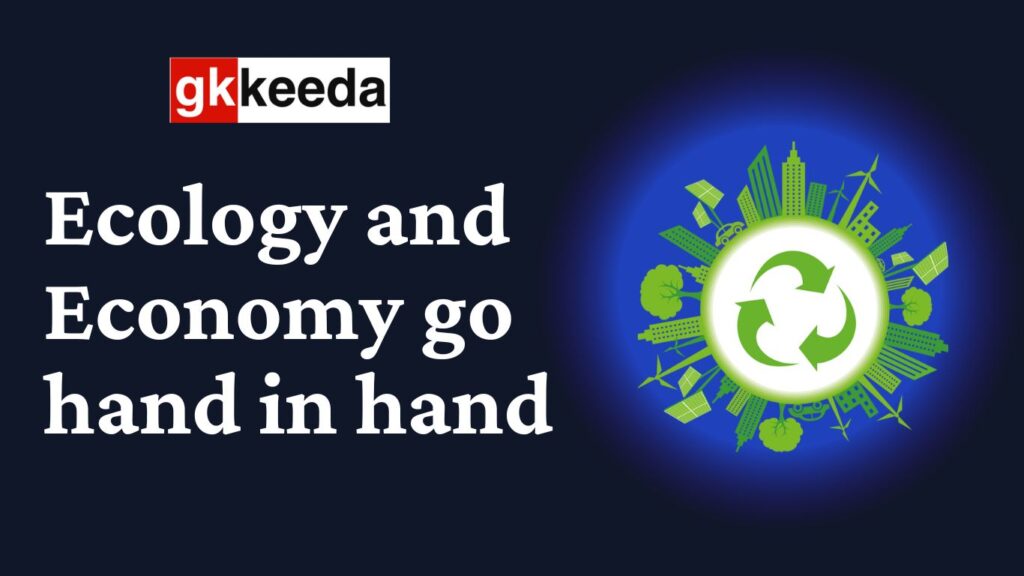Ecology and Economy go hand in hand

Note: The essay “Ecology and Economy go hand in hand” just contains the key points which the reader can take on and write the essay in their own word. You must use your knowledge and creativity to add some quotes which fit properly. Finally, write the conclusion by summarising the whole while maintaining balance.
Introduction:
We learned that economic growth and environment protection can and should go hand in hand.
Christopher Dodd
Background:
- Ecology is the combination of living and non-living, biotic and abiotic components of the earth. It is the system in which nature functions to provide many ecosystem services.
- These ecosystem services like food water soil etc. would perish if there is no ecology obviously.
The economy is inherent in ecology:
The economy is about the production and consumption of goods and services. This involves:
- Primary production – mining, fishing, agriculture, and many livestock, etc.
- Secondary production – value addition like food processing, refining mined petroleum or steel manufacturing, or automobiles.
Thus, all these economic activities are dependent on nature for water, soil, seeds, air, resources like minerals, seasonality, etc. This shows the economy is inherent in ecology.
An economy without ecology is impermanent
- The dependency on ecology makes the economy just a superstructure and ecology is the base.
- When ecology degrades then the economy will also degrade e.g. water shortage in Bangalore led to a moratorium on new real estate projects.
- Soil degradation in Punjab and Haryana due to the green revolution led to low productivity and a rise in protests for reservation in jobs etc.
Implications for economy
This implies the need for economic activity without affecting ecological integrity. This involves sustainable development.
- Protected areas like National Parks or Coastal Regulation Zone;
- Eco-sensitive Zones;
- EIA and compensatory afforestation etc.
- are meant to ensure development is sustainable, we need to follow many other principles like the precautionary principle, polluter pays principle, etc.
- Flipside – nations like developing countries want to alleviate poverty faster, here ecology cannot be an obstacle to an ethic of inclusive growth. Thus developed nations that affected ecology a lot should also pay the price and take more burden.
Way forward:
Need to promote systems that are in congruence with nature like organic farming, very important permaculture for subsistence methods, effective compensatory mechanisms, and well-enforced resource efficiency measures like water pricing, subsidy rationalization, or reuse principal promotion.



No Comment! Be the first one.